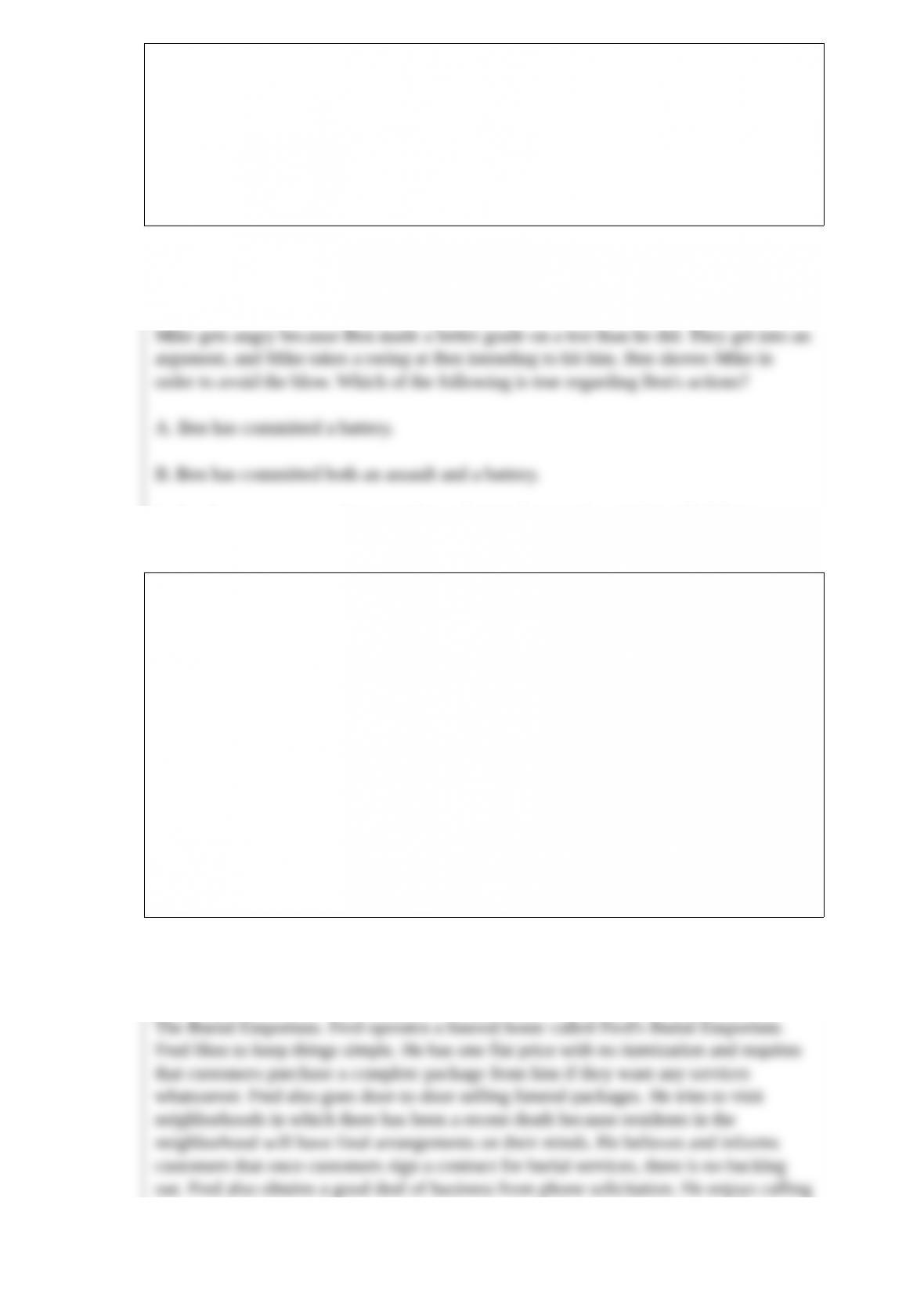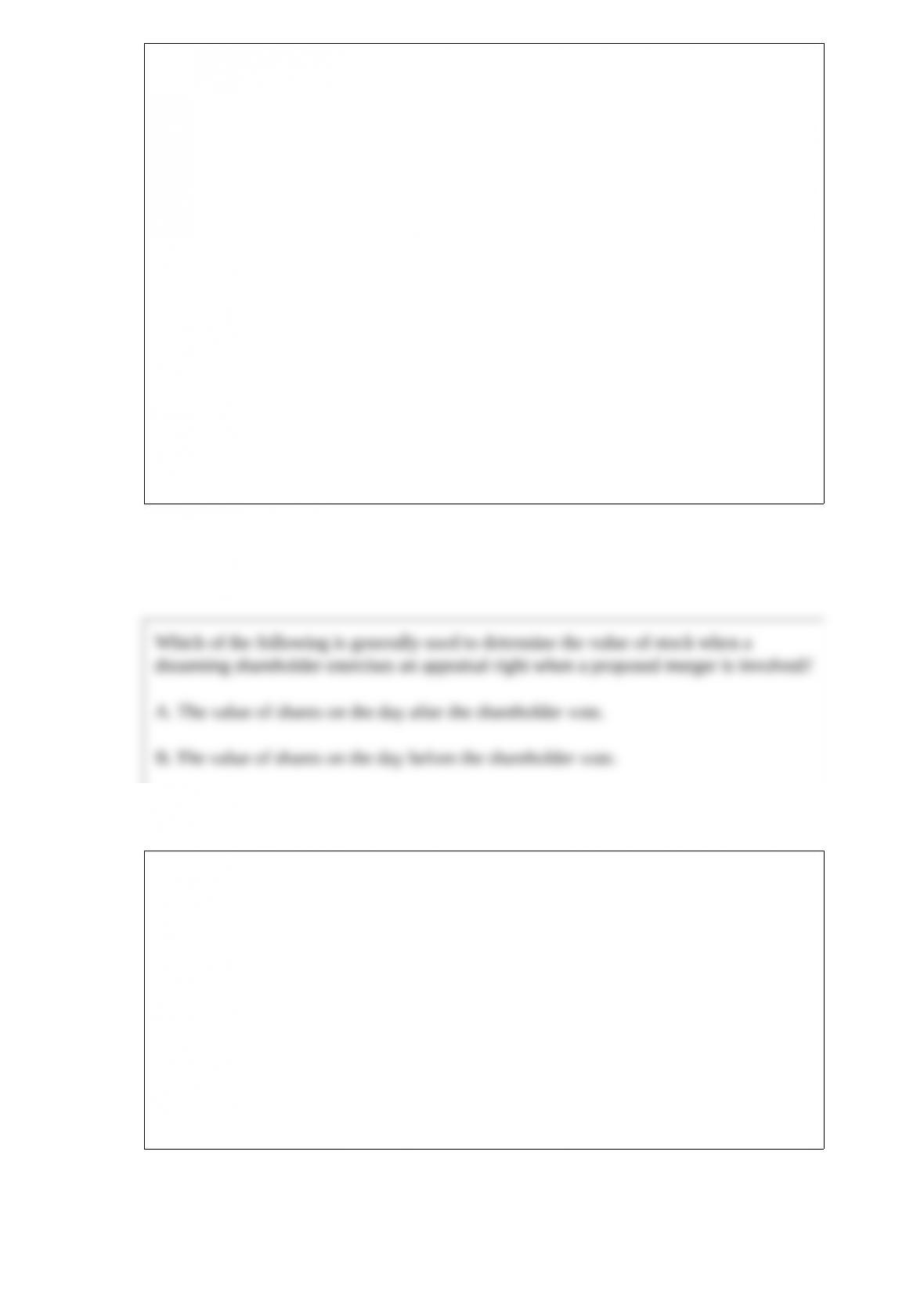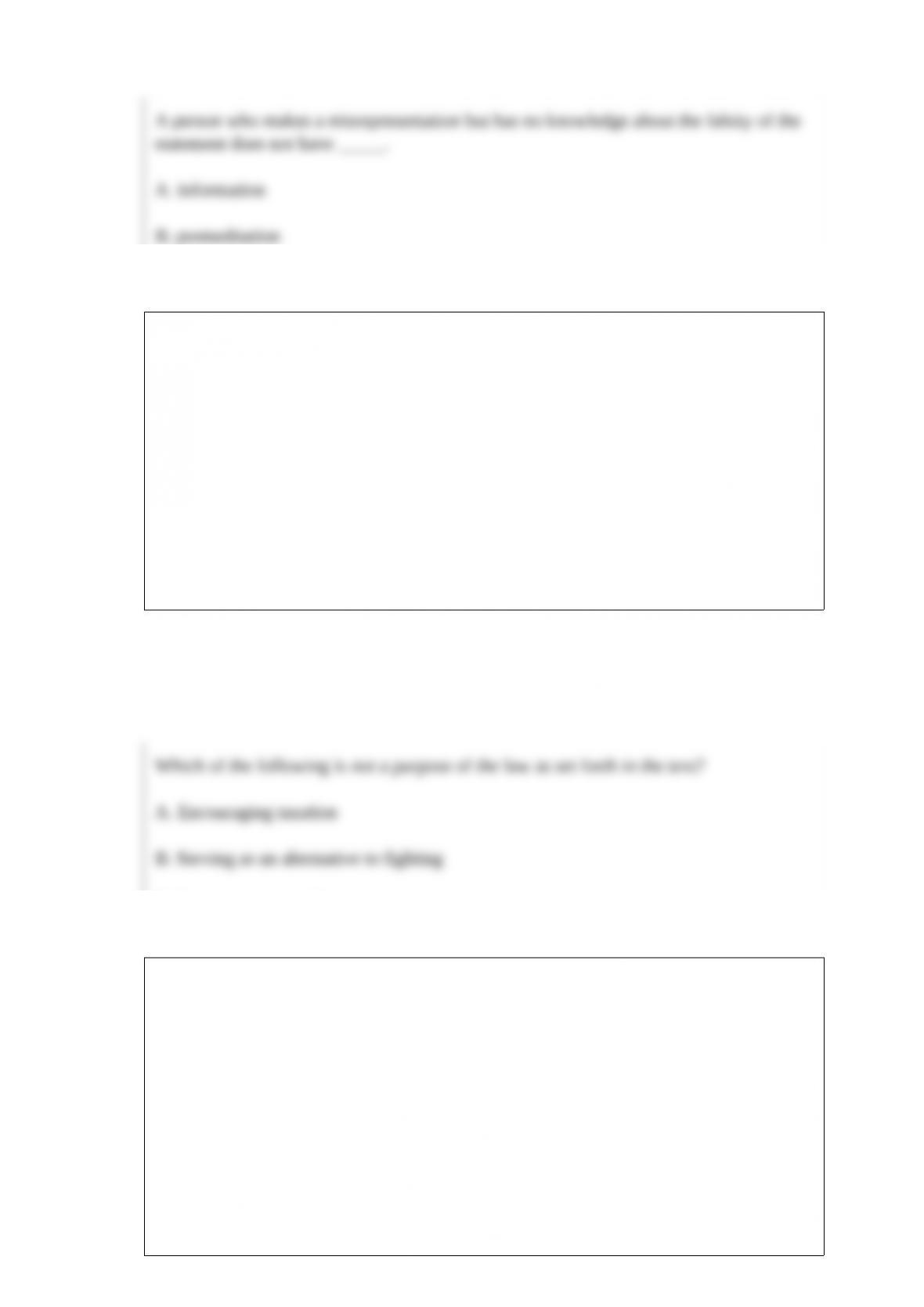The Burial Emporium. Fred operates a funeral home called Fred's Burial Emporium.
Fred likes to keep things simple. He has one flat price with no itemization and requires
that customers purchase a complete package from him if they want any services
whatsoever. Fred also goes door-to-door selling funeral packages. He tries to visit
neighborhoods in which there has been a recent death because residents in the
neighborhood will have final arrangements on their minds. He believes and informs
customers that once customers sign a contract for burial services, there is no backing
out. Fred also obtains a good deal of business from phone solicitation. He enjoys calling
late at night, between 10 p.m. and 11 p.m., when people are tired, but before they go to
bed. He believes that if people do not feel well, they are more likely to consider funeral
arrangements. After some pesky consumer complaints, the Federal Trade Commission
and other federal agencies investigate Fred. He hires a good lawyer with his profits in
an attempt to stay out of trouble. Which of the following is true regarding Fred's
practice of offering one flat price for funeral services with no itemization?
A. Federal law does not prohibit that practice.
B. That practice is prohibited under federal law in funeral home situations.
C. That practice is prohibited under federal law in funeral home situations only if there
is no other funeral home within 20 miles.
D. That practice is prohibited under federal law in funeral home situations only if there
is no other funeral home within 10 miles.
E. That practice is prohibited by federal law unless consumers receive a 10% discount
as compared to the average price of funeral services in his state.
Hair Stylist Woes. Maryann went to see her hair stylist, Candy. Maryann, who had
black, curly hair, requested straight, blond hair. Candy told her that she could make that
change, but there would be significant upkeep involved. Candy made the change, but
Maryann did not do the upkeep required. She also falsely claimed that Candy did not do
what Maryann asked her to do, that Candy lied to her, and that Candy was
professionally incompetent. Maryann made the statements to friends of hers. She also
wrote an editorial in her college newspaper to the effect that Candy's shop should be



































































